Economics means household (from the Greek oikonomos), and until 200 years ago, economics was merely a pragmatic way of running a household, village, or city state. It wasn't until 1776, with the publication of Adam Smith's Wealth of Nations, that man began to expand these "household" principles to the national level.
Adam Smith wrote of the "invisible hand" — supposedly a natural God-given equilibrium of wages, production, land, and rent — which any economy will reach if left alone. This was called, in French, "Laissez-faire et laissez passer, le monde va de luimeme," or "Don't interfere, the world will take care of itself."
But Adam Smith didn't foresee ravages of human nature in wars and revolutions. In the generation following The Wealth of Nations, the French and American revolutions caused widespread destruction and inflation in those countries, leading to the Napoleonic wars and the War of 1812. War and revolution are primary "people problems" of economics.
|
Robert Malthus
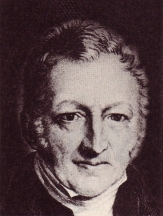
Bettmann Archive
|
Karl Marx
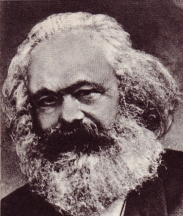
Wide World Photo
|
John Stuart Mill
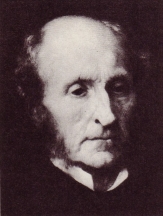
Bettmann Archive
|
|
David Ricardo
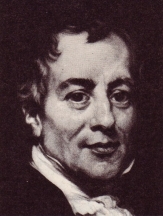
Bettmann Archive
|
Next came the debate between David Ricardo, Smith's leading disciple and Robert Malthus, the famed "population explosion" prophet. Malthus simply pointed out laissez faire was not working! But Ricardo's theories showed on paper how beautifully it should work (during peacetime).
Both Ricardo and Malthus failed to foresee the next "people problem" — the dislocation caused by the Industrial Revolution. Because of human greed during peacetime (about 1815 to 1848), economic power was centered in a few individuals, the industrial giants. Cheap labor was lured from the farm; children were employed in 15-hour-a-day sweat shops. The robber barons of the 1800's ruined the theories of Ricardo.
|
John Maynard Keynes
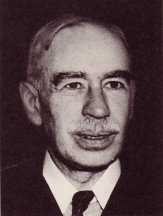
United Press International
|
Marxism and Monetarism
Then came "Round Two" of economic theory — Marx, Mill, Marshall, and monetarism.
In 1848, revolutions broke out all over Europe, as exploited workers rose to "break the chains" of industry, the fruit of laissez faire.
Also in 1848, Marx and Engels wrote the now-infamous Communist Manifesto, and the brilliant classicist John Stuart Mill wrote Principles of a Political Economy.
Marx wanted all economic and political power in the hands of the people (called "proletariat," or workers). He called for now-accepted concepts such as 8-hour work days, and Social Security. But his idea of power to workers has obviously failed. Due to the same culprit — human nature — workers have often become "robber barons" in their own right by demanding more than they produce. Marxist, Socialist, and Communist economies obviously don't work!
"Classical" economics reached its peak in John Stuart Mill, gifted (200 IQ) son of British economist James Mill. He called for "calculated intervention to spread the benefits of progress," or a slightly visible hand.
Mill died in 1873, the year of perhaps the worst depression of the century — the Panic of 1873. Due to the influence of Marx and Mill, workers' wages and benefits grew, BUT during the half-century 1879 to 1928, unemployment averaged an estimated 10.2% for all workers in the manufacturing, mining, and transportation fields. Even in "prosperous" years, unemployment stood at what is considered now a recession — 6%.
Such panics and massive unemployment were considered "acts of God," in the laissez faire tradition. To interfere was considered near blasphemous.
Professor Alfred Marshall continued to teach Mill's classical theories for 50 years, until Marshall's death in 1924. Throughout the period unemployment and panics reigned, and the biggest of all hit in 1929.
Parallel with Mill and Marshall was the belief in monetarism, the regulated supply of money based on gold and silver backing. But irregular "gold rushes" caused inflationary siege, yet didn't prevent panics.
Keynesian Economics
The stage was set for round three — the modern era of Keynesianism.
The Great Depression severely weakened classical economics and monetarism (our worst depressions struck while under the gold standard). But, nevertheless, "most of the respectable economists stuck to their Ricardian guns," wrote Leonard Silk, Brookings Institute economist.”They called for workers to accept lower and lower wages until they were all reemployed . . . the Depression was a temporary state of unbalance, and prosperity was just around the corner, they said."
But such ivory-tower pronouncements didn't convince the 13 million American unemployed, starving and broke transients.
The economic world was ripe for a change — and classically trained Britisher John Maynard Keynes (pronounced canes) filled the need of the day, with his 1935 treatise, General Theory of Employment, Interest, and Money. He turned classic theory upside down, by advocating governmental planned deficits to "prime the pump" (or planned surpluses to cool down a boom), planned inflation to prevent unemployment, and national accounting systems (GNP and its components) to be the basis of such planning.
The debate between Keynesians and monetarists has raged for 35 years, but since U.S. President Nixon became the first Republican Keynesian, such planned deficit theories can now be called "establishment," the classicism of the 1970's.
But Keynesianism too is failing, due to human nature in the government sector (as well as business and labor). Keynes called for half deficits, half surpluses, but political expediency has given us about six deficits to each surplus since 1931.
All economic systems have failed or are failing. What is the root cause of such universal failure? Men of genius IQ have failed to give mankind a workable economy, because no genius can change human nature.